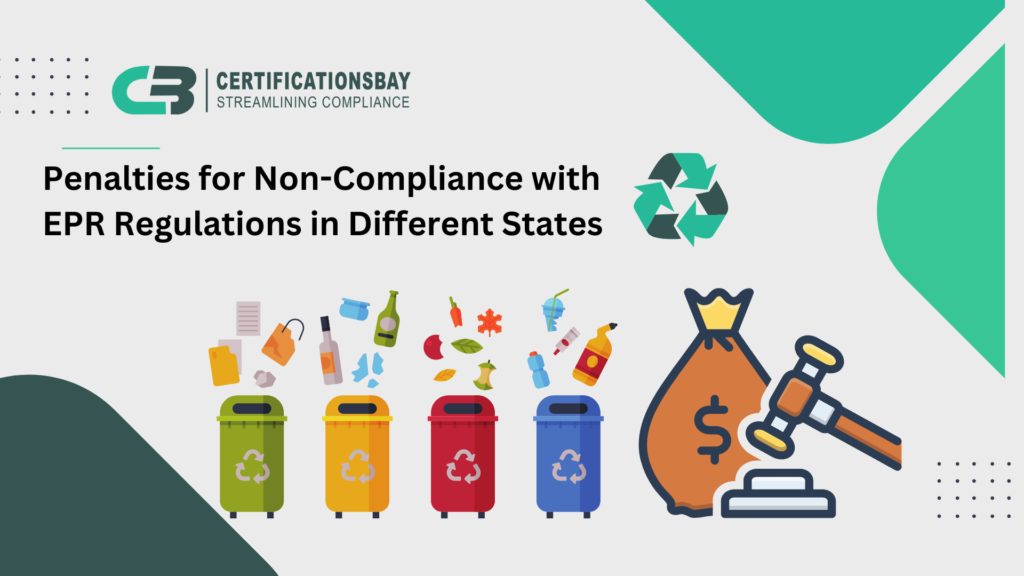
Compliance with Extended Producer Responsibility (EPR) regulations is crucial for producers, importers, and brand owners in India. These regulations ensure that entities responsible for introducing products into the market also take responsibility for managing the disposal of waste generated by those products. The penalties for non-compliance can vary significantly across different states, depending on the regulatory environment and enforcement practices. Below are the key aspects of penalties for non-compliance:
General Penalties for Non-Compliance
- Fines: Non-compliant businesses may face substantial fines. The amount imposed typically varies based on the severity of the violation and the state’s specific regulations. Fines can range from minor penalties for first-time offenses to hefty fines for repeated non-compliance. The exact figures can differ, but they serve as a financial deterrent against ignoring EPR obligations.
- Legal Action: Beyond financial penalties, businesses that fail to comply with EPR regulations may face legal consequences. This could include lawsuits or other legal actions initiated by regulatory authorities. Legal proceedings can lead to further financial burdens and reputational damage.
- Suspension of Operations: In some cases, states may take more severe actions against non-compliant entities by suspending their licenses or permits to operate. This can halt business operations until compliance is achieved, resulting in significant operational and financial setbacks.
- Mandatory Compliance Orders: Regulatory authorities may issue orders requiring businesses to take immediate corrective actions. These orders could involve setting up waste management systems, submitting overdue compliance reports, or other measures to rectify non-compliance. Failure to comply with these orders can lead to further penalties.
State-Specific Variations
- Stricter Enforcement in Certain States: States like Maharashtra and Gujarat are known for their rigorous enforcement of EPR regulations. These states often impose higher fines and maintain stringent monitoring systems. Businesses operating in these states must be particularly diligent in adhering to EPR guidelines to avoid severe penalties.
- Variability in Fines: The fines for non-compliance can vary widely across states. For example, some states might impose fines ranging from INR 25,000 to INR 1,00,000 for first-time offenses, with the potential for significantly higher penalties for repeat violations. This variability highlights the importance of understanding state-specific regulations.
- Local Regulations: In addition to the central EPR guidelines, some states have their own local waste management regulations, which may impose further penalties for non-compliance. For instance, Delhi has specific waste management laws that could result in additional fines beyond those mandated by central regulations.
- Awareness and Capacity: The level of awareness and enforcement capacity also varies across states. In states where awareness is lower or enforcement mechanisms are less robust, penalties may be less stringent or inconsistently applied. This can lead to disparities in compliance levels across different regions of the country.
Conclusion
Penalties for non-compliance with EPR regulations in India are intended to enforce accountability among producers, importers, and brand owners. While the central framework provides a baseline for penalties, the actual enforcement and consequences can vary widely from state to state. Businesses must be vigilant in understanding both central and state-specific regulations to ensure full compliance and avoid the significant penalties that can result from non-compliance. Proper adherence to EPR regulations not only helps avoid penalties but also contributes to sustainable waste management practices in the country.
